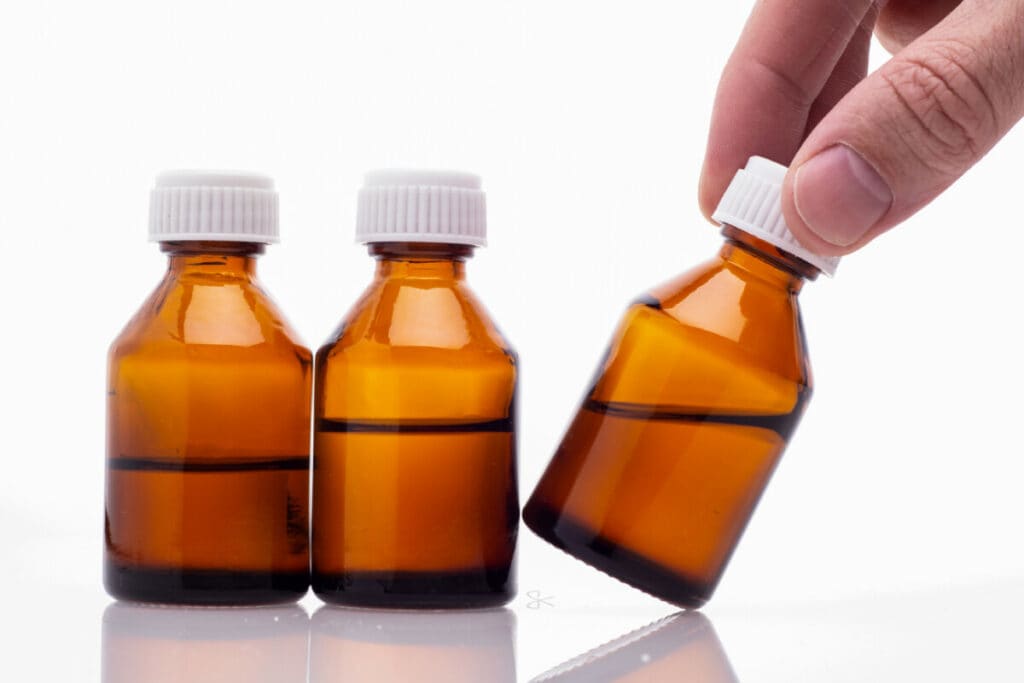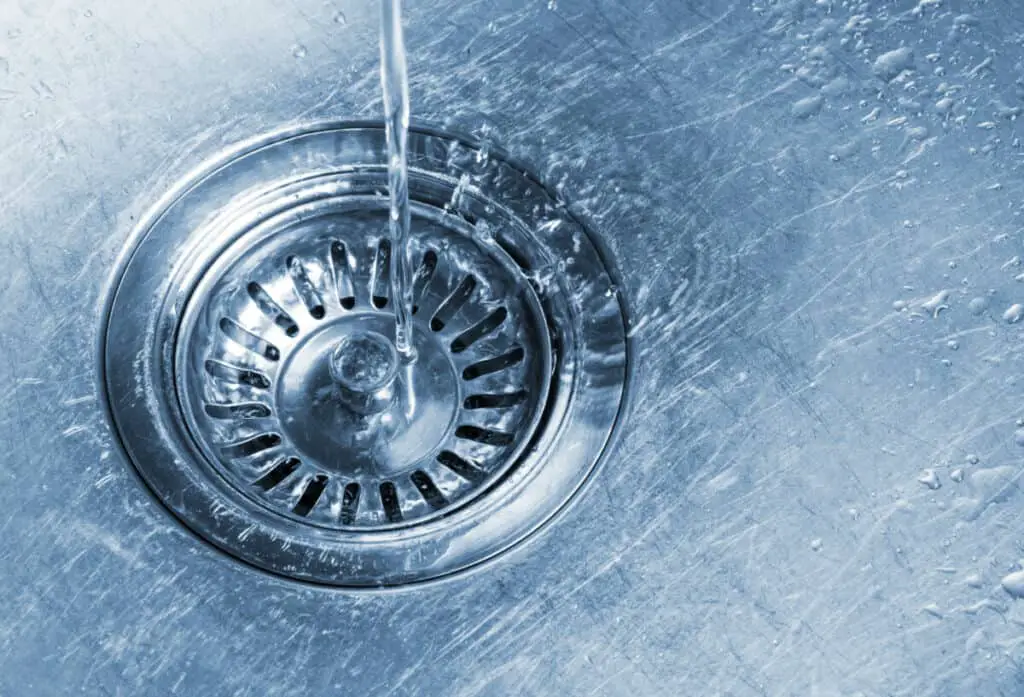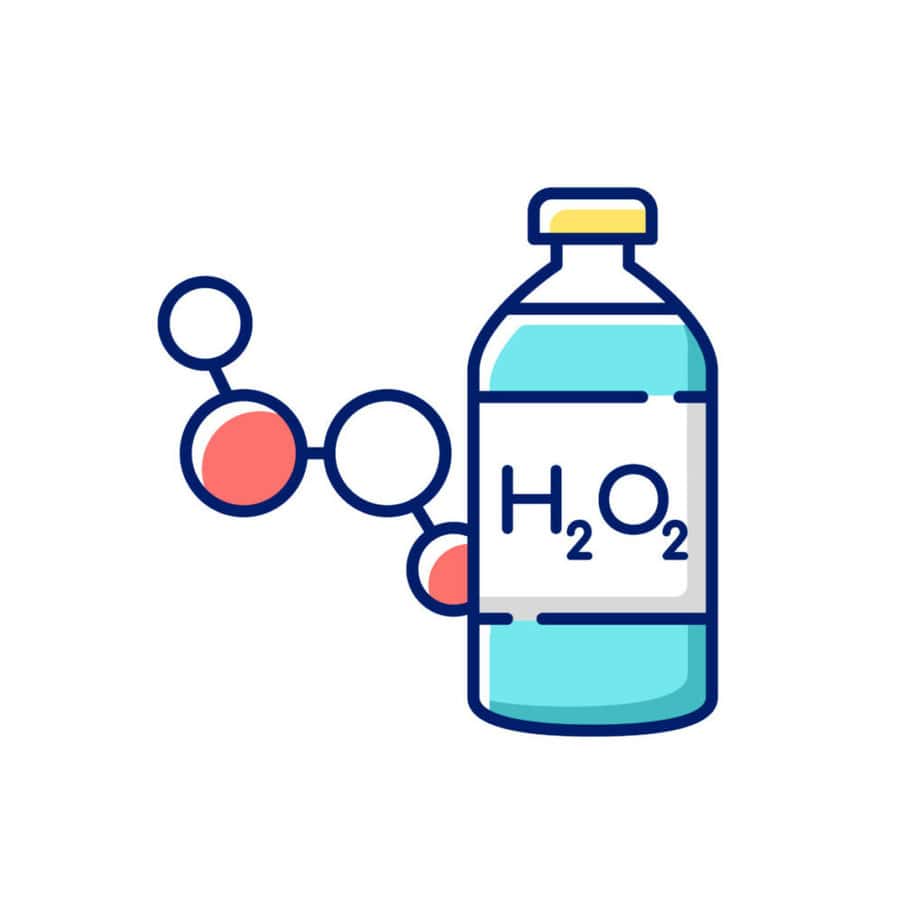
Hydrogen peroxide can stay good for years if unopened, and months once the seal is broken. However, once it is spent, you can’t just dump this chemical in the trash can.
Hydrogen peroxide is a corrosive chemical that should be carefully diluted, but at concentrations under 8%, it can be safely disposed of down a sink drain. If not disposed of, hydrogen peroxide can also be used as a cleaning agent and disinfectant. It is not recommended for use on the skin.
There are lots of ways to use up hydrogen peroxide around the house, but if you just want it out, it’s easy to get rid of. Just make sure you’re using it carefully and not working with a high concentration.
Safe ways to dispose of hydrogen peroxide

The hydrogen peroxide sold in grocery stores tends to have a concentration of 3%, so it isn’t dangerous to pour it down the drain. If you’re still worried about it not being diluted enough, pour it slowly while running your faucet, to dilute it further. Hydrogen peroxide dissolves very quickly in water, so this may keep it from becoming fumes as well.
Don’t pour hydrogen peroxide in an enclosed or tight space, because the fumes of evaporation of hydrogen peroxide can be toxic and irritating if inhaled in large amounts.
When using hydrogen peroxide, wear gloves, as it will have a corrosive effect on your skin. Keep it out of your eyes! Don’t pour hydrogen peroxide anywhere besides the sink, like in the yard, because it will kill living things like plants. I also wouldn’t recommend pouring it in your kitchen sink or bathtub unless you run the faucet for a few minutes, because you don’t want it contaminating you.
You can pour it down the bathroom sink, which has the added benefit of cleaning out your drain. If you’re still worried about it being in your sink, another option is to flush it. Flushing it down the toilet will help eliminate those fumes, and dilute further with water.
If your hydrogen peroxide isn’t expired, and you want to get rid of a larger or more concentrated amount, you can also donate it to chemical labs or school, where it will receive a second life in experimentation. Unfortunately, aside from using or donating it, there isn’t really a way to recycle hydrogen peroxide, so don’t worry about doing anything but getting rid of it.
Uses for hydrogen peroxide
Hydrogen peroxide has many uses around the home, so if you don’t want to toss it out, use it up! The best use for hydrogen peroxide is as a disinfectant. Hydrogen peroxide oxidizes living cells, which means it can be used as an antiviral and antibacterial agent.
You don’t want to ingest any hydrogen peroxide, so I wouldn’t recommend it on countertops, tables, or other areas with a lot of food prep, but it can be a great way to clean floors, bathrooms, sinks, and other food-free areas. Hydrogen peroxide is a corrosive chemical, and it breaks down potential hazards. When using it as a cleaning agent, make sure to use it in a well-ventilated room and wear gloves to avoid irritation from the corrosives.
It can be used much like bleach. While you should still be safe about using hydrogen peroxide, it is less toxic than bleach, which is why it is recommended for use over chemicals like bleach. This means, that instead of using stinky bleach, you can use odorless hydrogen peroxide to whiten and clean.
Hydrogen peroxide is often used in health products as well, like toothpaste and salves. However, straight hydrogen peroxide from the bottle may not be ideal for medicinal use. It can disinfect cuts, wounds, and acne, but it also irritates the skin, which can make the confidant worse. It isn’t unsafe to use for minor wounds, but warm water and soap may be a gentler and better option.
When diluted with one to two parts of water, it can be used as a mouthwash to disinfect the mouth and cure conditions like cold sores, but since it can be hazardous when ingested, I don’t recommend rinsing your mouth with it. Saltwater can also be used as a disinfectant for your mouth and gums and is much safer, so try using that for cold sores, not hydrogen peroxide.
What is hydrogen peroxide?

Hydrogen peroxide is H2O2 or a water molecule with two hydrogen atoms instead of one. The difference in atoms may seem small, but the chemical difference is huge, so don’t go mixing any of this stuff into your lemonade. It is colorless and odorless, and while nonflammable, it does react with organic material. This is why you see it fizz and bubble when in contact with your skin.
Hydrogen peroxide can kill bacteria, but it can also irritate your skin and eyes, and should never be drunk or inhaled. Hydrogen peroxide in its pure form can be very dangerous, but the hydrogen peroxide you find at your local grocery store has been severely diluted to make it safe for household use. This hydrogen peroxide is usually diluted with water to about 3%. There is also food-grade hydrogen peroxide, which is a much higher concentration at 35%. While used for disinfecting industrial foods and areas, this concentration has no place in your house.
At a 3% concentration, hydrogen peroxide is not a very dangerous chemical. Just be sure not to ingest any or get it in your eyes. Hydrogen peroxide doesn’t go bad, exactly, but it does evaporate very quickly, so once you’ve opened a bottle, it can vaporize and, after a few months, won’t be concentrated enough to have the same effect, which is when it expires and needs to be tossed out.
Luckily, expired hydrogen peroxide isn’t like expired milk. It doesn’t become more hazardous when it reaches its expiration date, so don’t break out the hazmat suit just yet. Hydrogen peroxide used to be used on minor wounds, acne, and even as a mouthwash to disinfect the mouth, but new studies don’t recommend it for medical purposes, as it can irritate the skin, which just keeps it from healing
Related Topics:
If you like the article above, here are some other similar articles you should check out!
What Should I Do with Expired Helmets
